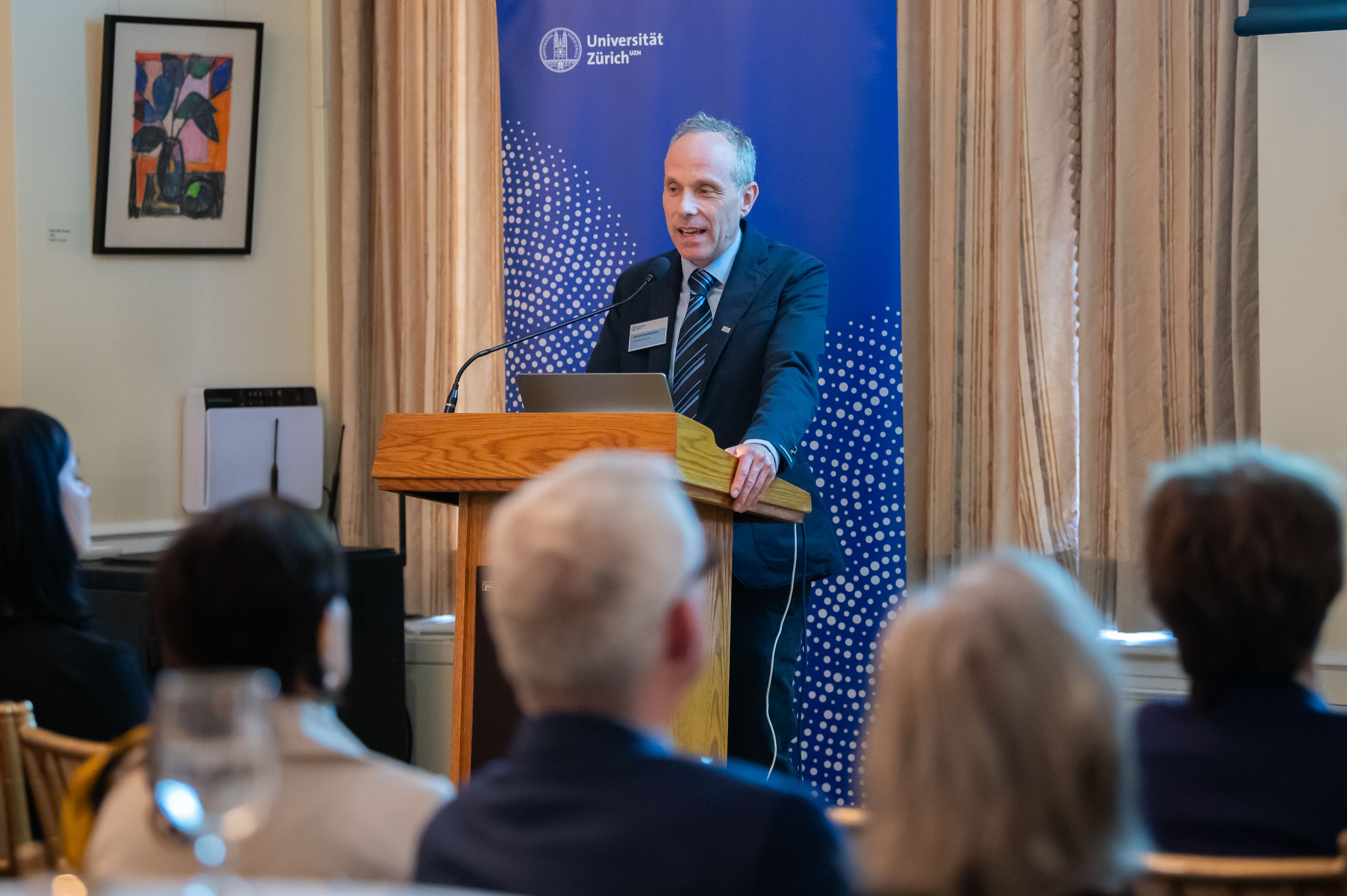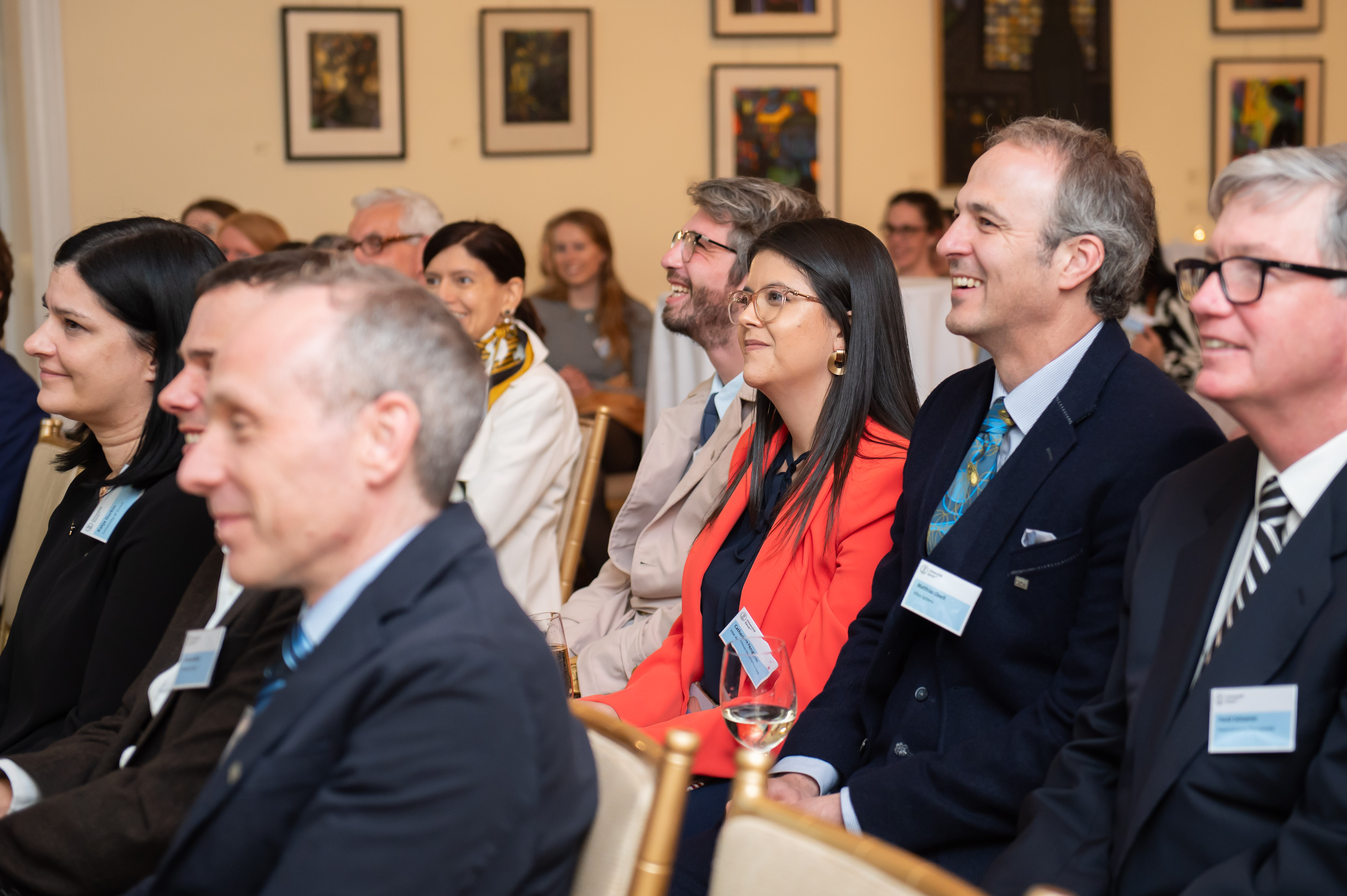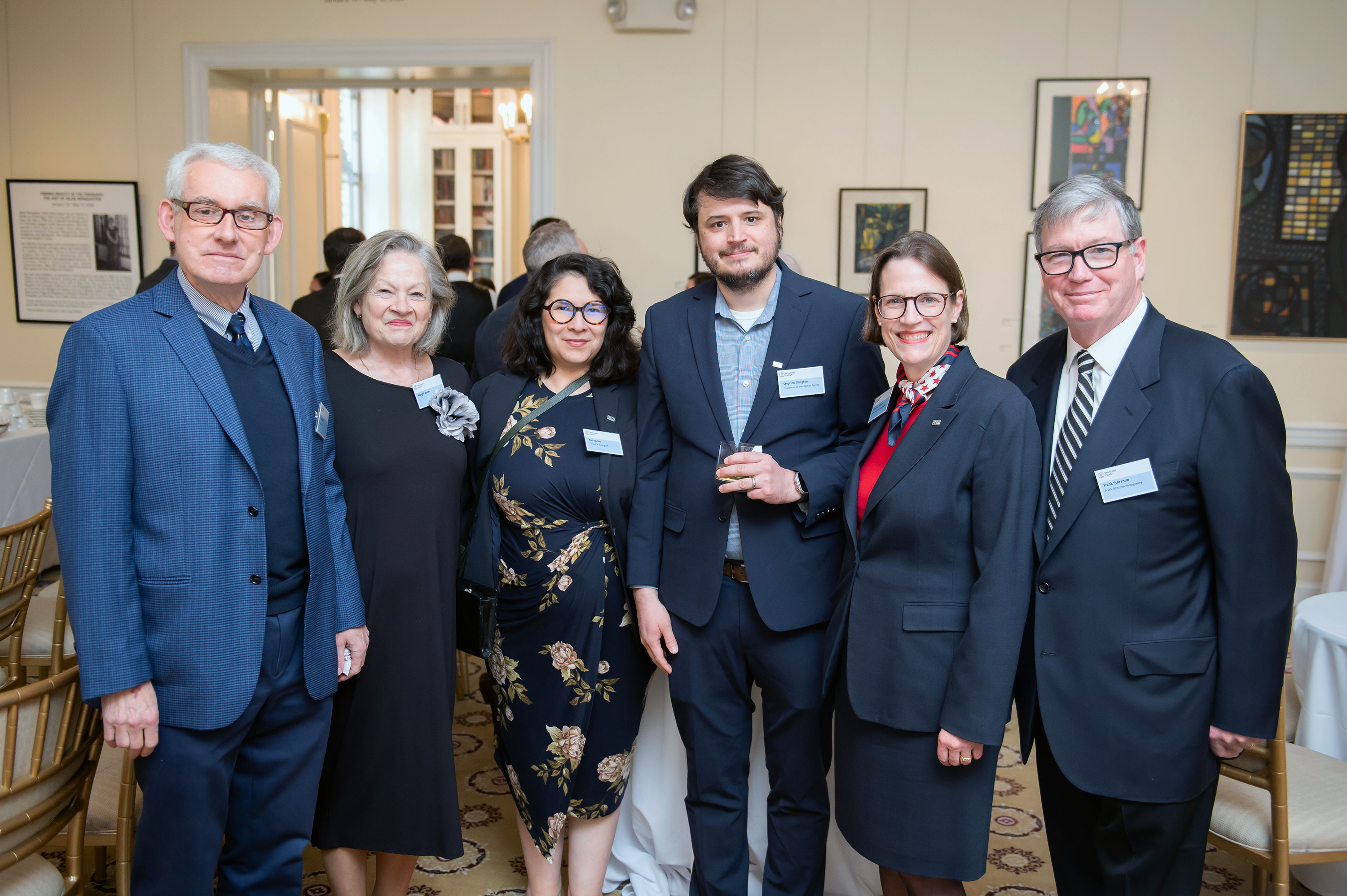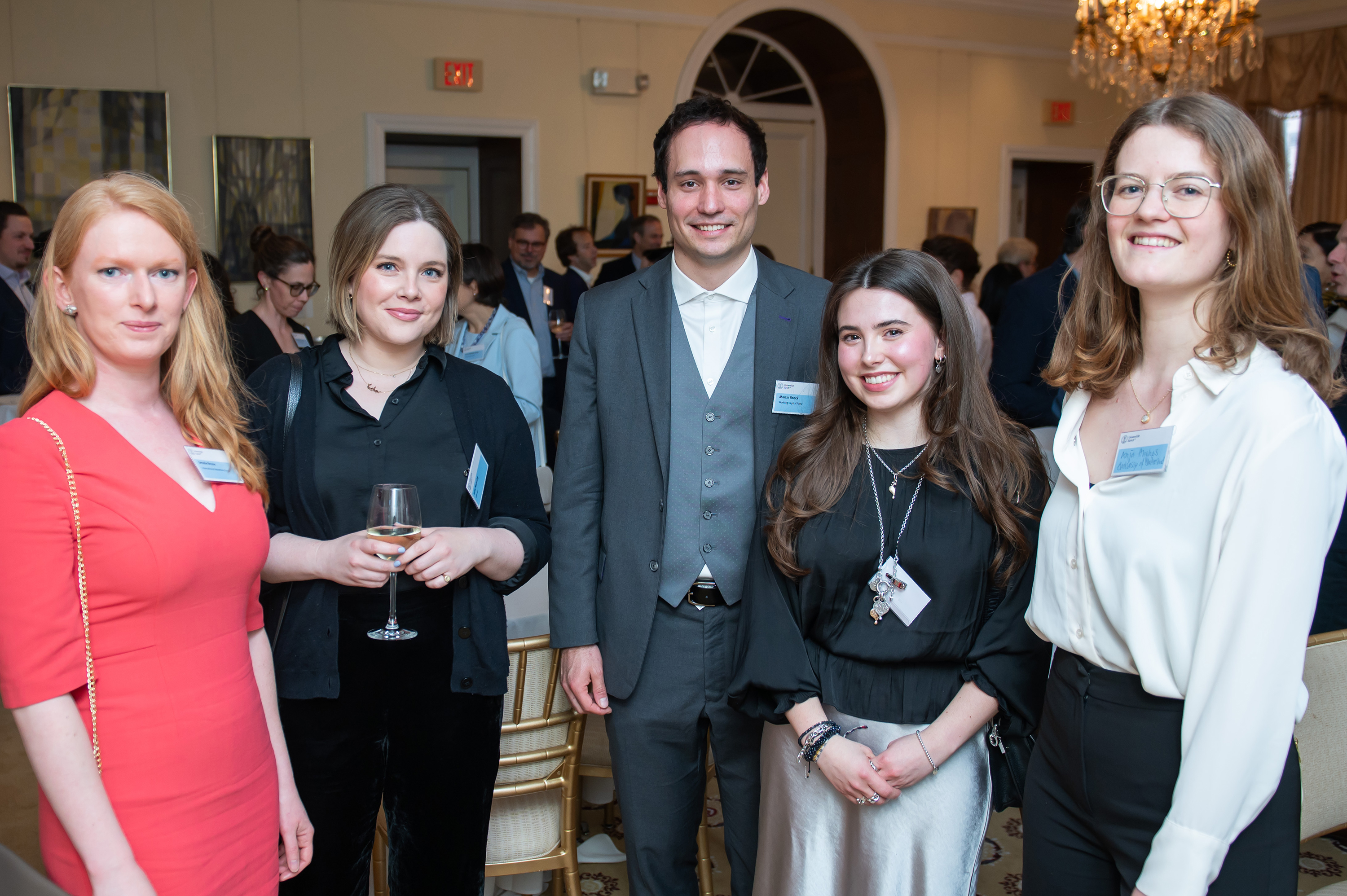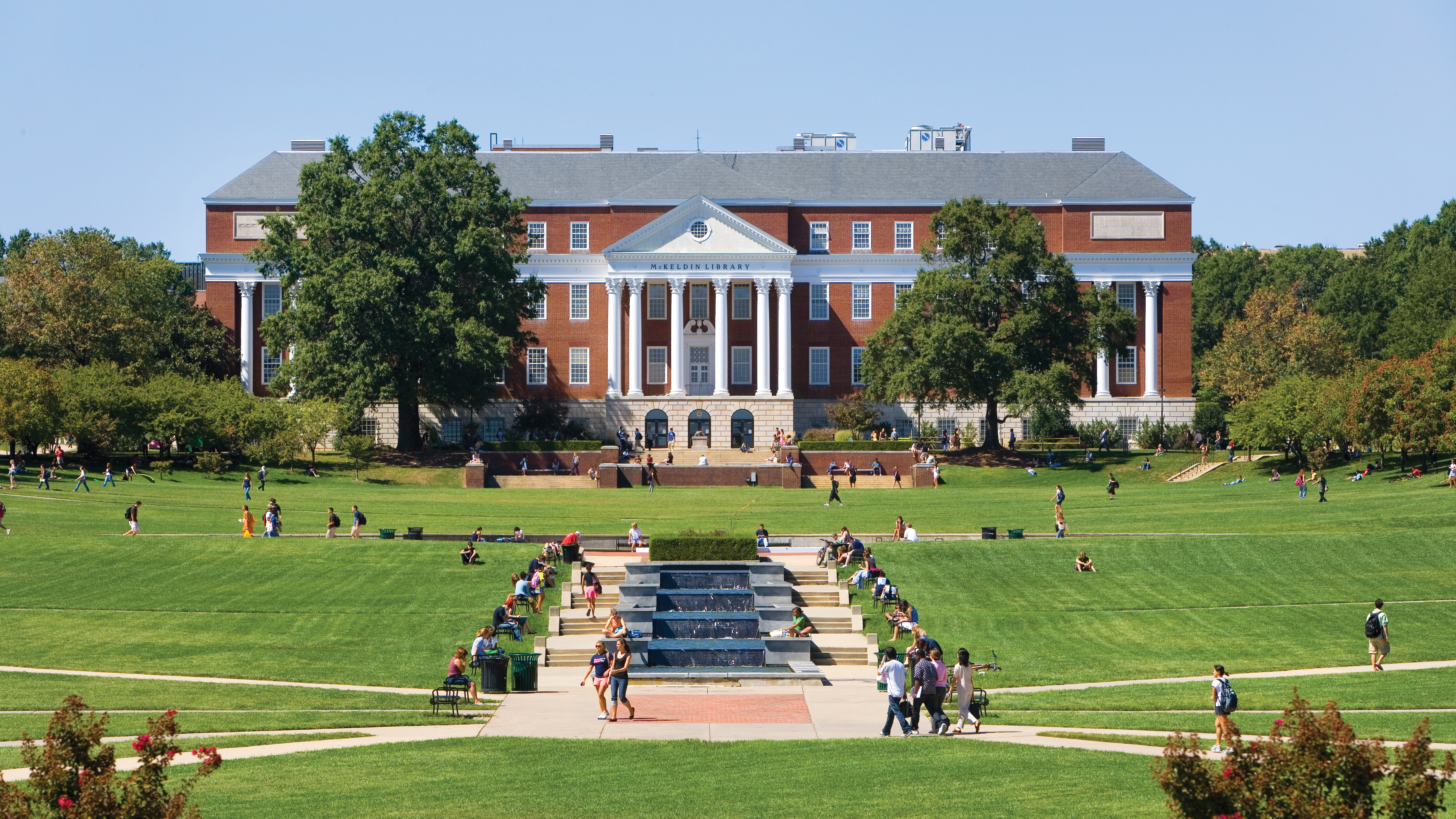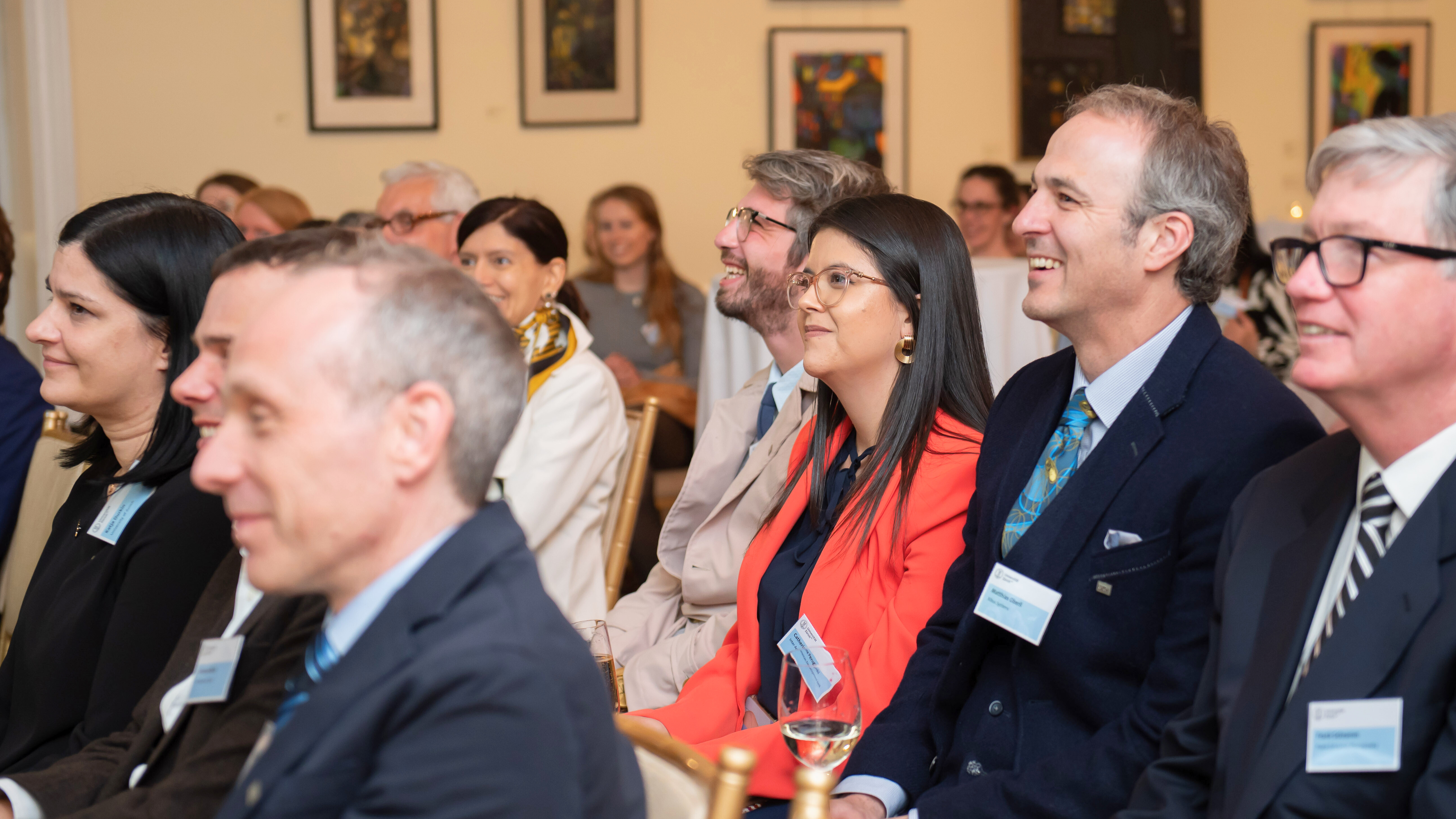On a Mission for Biodiversity Partnerships
U.S. institutions are among UZH's most important partners in research and development. To foster academic exchange, the President visited important cooperation partners with a group of scientists. The thematic focus was on the areas of global change and biodiversity.
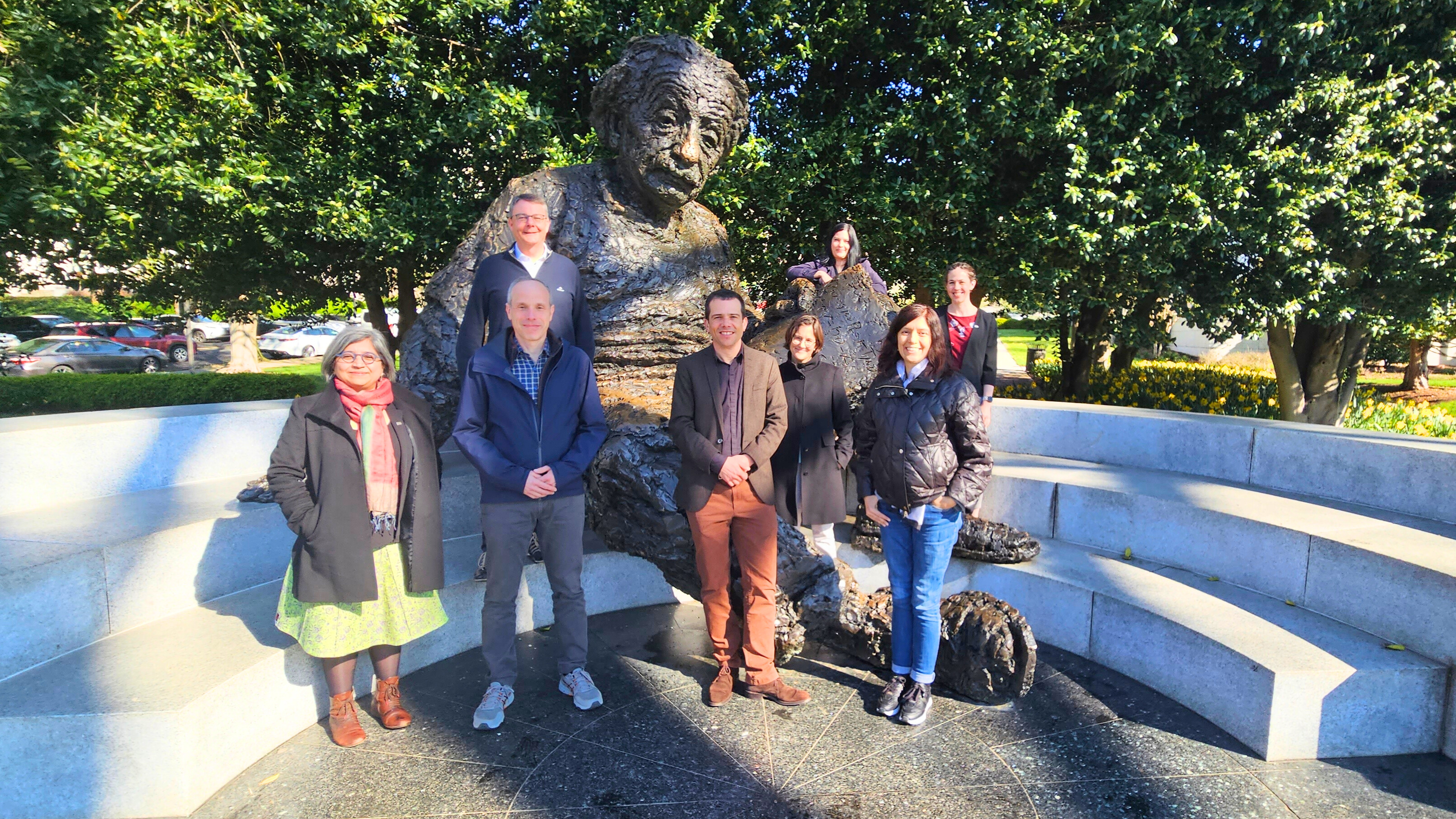
One of the highlights of the UZH delegation’s multi-day visit to the U.S. capital, consisting of researchers from various faculties, was an event titled “Getting the Big Picture on Global Change and Biodiversity”. Hosted by Jacques Pitteloud, Ambassador of Switzerland to the United States since 2019 and a UZH faculty of law alumnus, the event took place at the Swiss Embassy in Washington D.C.
Global change flash talks for inspiration
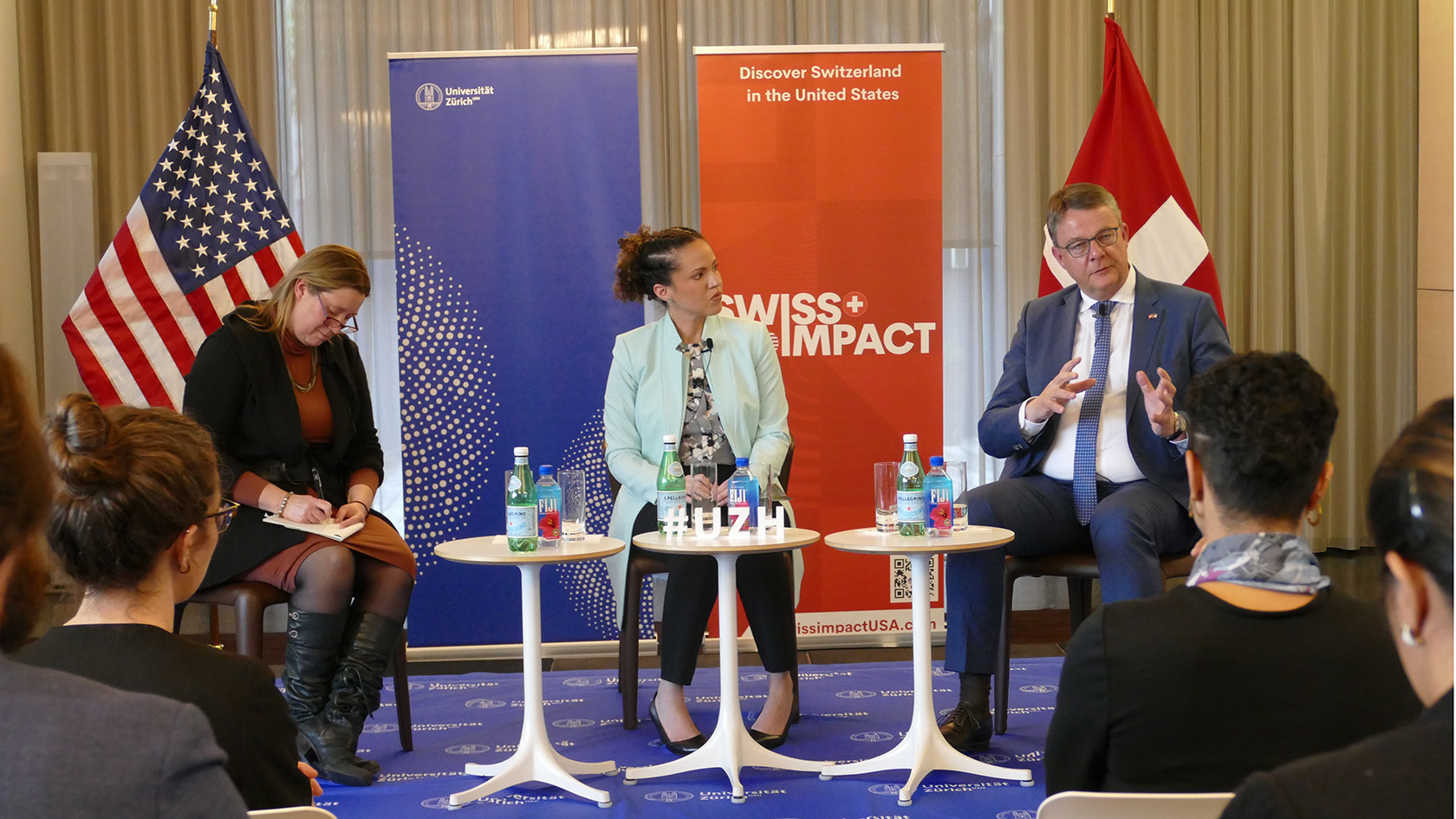
Addressing urgent environmental challenges, UZH scientists initiated the discussions with policymakers, scientists and members of the diplomatic community through 5-minute “flash talks”, providing insights into their approaches to biodiversity and global change.
Debjani Bhattacharyya, Professor for the History of the Anthropocene, presented her perspective on atmospheric exploitation, questioning why carbon emissions, which threaten our planet, have been turned into a tradeable commodity. Anna Deplazes Zemp, ethicist and lecturer at the UZH Ethics Research Institute, proposed that lasting changes in our environmental practices must originate from our cultural values and personal relationships with nature. Johannes Reich, Professor of Public Law, Environmental Law and Energy Law, raised concerns about new technologies designed to reduce solar radiation and their uncharted impacts. Maria J. Santos, Professor of Earth System Science, suggested that understanding the interplay between human actions and natural systems is vital for tackling current environmental challenges. Finally, Meredith C. Schuman, Assistant Professor of Spatial Genetics at UZH, focused on the importance of ecological genetics in adaptation and survival across species in the face of global change. Summing up, she said: “We need to help each other, and the ecosystems we depend on, to persist and adapt in a rapidly changing world. To do that, we need the community, energy, and innovation that come together when different people work on a challenge.”
These flash talks were followed by an in-depth panel discussion on biodiversity. On the panel were Kelly Kryc, Deputy Assistant Secretary for International Fisheries at the National Oceanic and Atmospheric Administration (NOAA) and UZH President Michael Schaepman, who shared their expertise on conservation and sustainable practices. The discussion was moderated by Laura Delgado López, a NASA analyst and visiting fellow at the Center for Strategic and International Studies (CSIS).
Strengthening connections across the Atlantic
Additionally, the delegation’s schedule included a networking event in Washington D.C. for UZH alumni. In his “Alumni Talk”, Michael Krauthammer, Chair of Medical Informatics and Director Department of Quantitative Biomedicine, discussed digital health initiatives at UZH.
Highlighting the contribution of UZH’s research towards developing an equitable, affordable and high-quality healthcare system, he said: “Our interdisciplinary work across many digital health professorships at UZH is paving the way for novel tools and solutions that will support physicians and other healthcare professionals in their daily tasks.” He assumes that AI-powered systems will take over routine diagnostic and patient documentation, allowing physicians to spend more time in direct patient contact. AI will guide hospital resource allocation, will allow for identifying optimal clinical pathway and will be instrumental in identifying novel drug candidates and treatment strategies.“ This work not only highlights the diverse activities in Zurich, but also serves as a practical example for partners abroad, demonstrating the importance of collaboration in realizing health innovations.” Michael Krauthammer, who earned degrees from UZH and Columbia University, also focused on possibilities for U.S.-Swiss cooperation in this quickly developing field.
The networking event was attended by over 50 alumni and friends from the Washington D.C., Boston and New York chapters, which maintain a thriving UZH alumni community.
The delegation's trip furthermore included a visit to the University of Maryland (UMD), a leading public research university located just outside Washington D.C. Besides longstanding research and academic partnerships, UZH and UMD are connected through the international Universitas 21 network. The meetings concluded with a reaffirmed commitment to international cooperation in education and research.
Key partnerships in the USA
The U.S. is one of UZH's most important partners in areas such as academic exchanges and research collaborations. In the last five years alone, from 2018 to 2023, UZH and U.S. institutions have co-authored over 10,500 research papers, particularly in fields like medicine, biochemistry, genetics, molecular biology, and physics and astronomy. Research partnerships with prestigious U.S. universities like Harvard, Columbia, and Stanford have been instrumental in furthering research and education.
Looking back, Michael Schaepman, UZH President, said: “Our visit has demonstrated once again the crucial role universities play in shaping societies that are based on more equitable resource sharing, access, and use. Furthermore, it has highlighted mutual benefits of interdisciplinary collaboration and partnerships with U.S. partners when building a resilient, nature-positive global community where people, economies and nature thrive.”
Anne Nuria Boekhout
